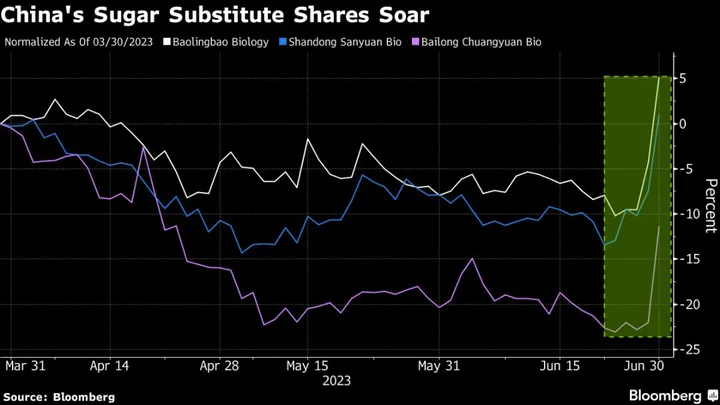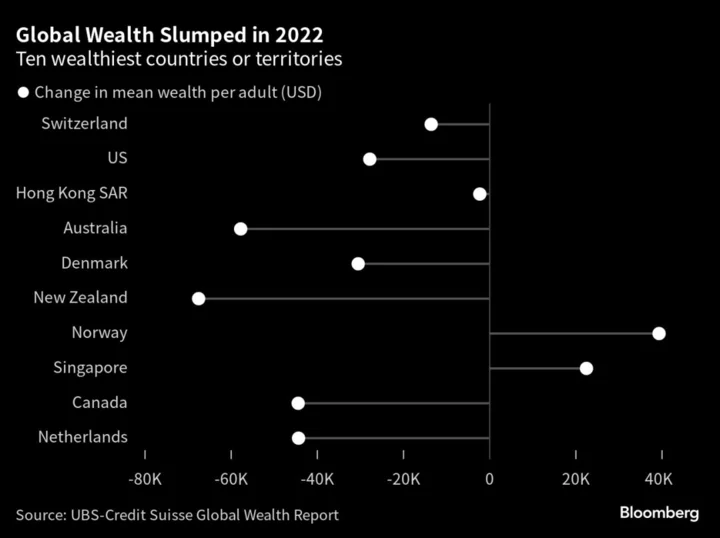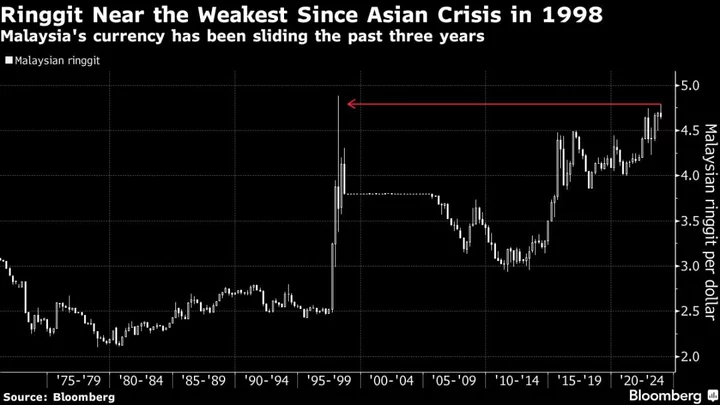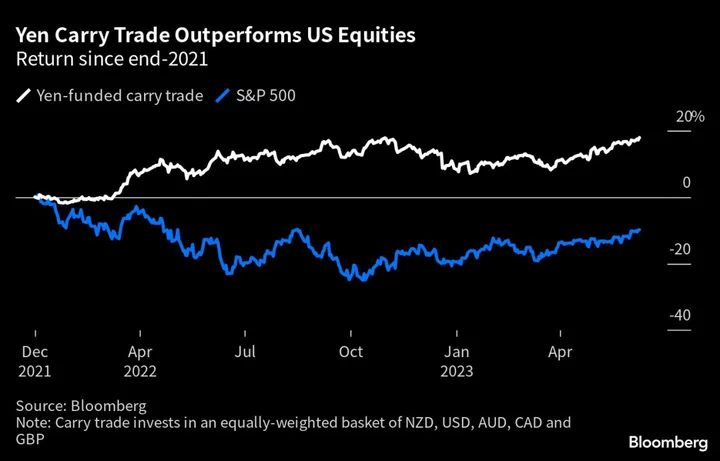China’s sweetener producers gained after a report said the World Health Organization is set to decide on the safety of aspartame, a manufactured sugar used in popular diet drinks, with an analyst saying substitute manufacturers may profit.
Shares in Baolingbao Biology Co. and Shandong Sanyuan Biotechnology Co., which make natural sweetener erythritol jumped by at least 10% each on Friday. Anhui Jinhe Industrial Co., a producer of additives including sucralose gained 9.8%, while Shandong Kaisheng New Materials Co., which uses a raw material used in its production, advanced 15%.
WHO’s cancer research arm — the International Agency for Research on Cancer — is set to declare aspartame as “possibly carcinogenic to humans” in July, Reuters reported Thursday, citing people familiar with the process it didn’t identify. The IARC assessment can classify aspartame into one of four categories: carcinogenic to humans, probably carcinogenic to humans, possibly carcinogenic to humans or “not classifiable as to its carcinogenicity to humans.”
Should the findings lead to widespread concern among consumers, companies may replace aspartame with the even sweeter sucralose, which is 600 times sweeter than sugar, Citic Securities analysts including Sheng Xia wrote in a note.
Aspartame is also used in diet foods and sugar-free gums, and is common among China’s food and beverage industry catering to the sugar-free trend. The diet beverage market alone quadrupled in five years since 2017 to reach nearly 20 billion yuan ($2.76 billion) last year, according to consultancy iiMedia Research.
IARC is likely categorize the carcinogenic effects of the additive on par with agents such as red meat, or radio-frequency electromagnetic fields associated with mobile-phone use, the Citic Securities analysts said.









